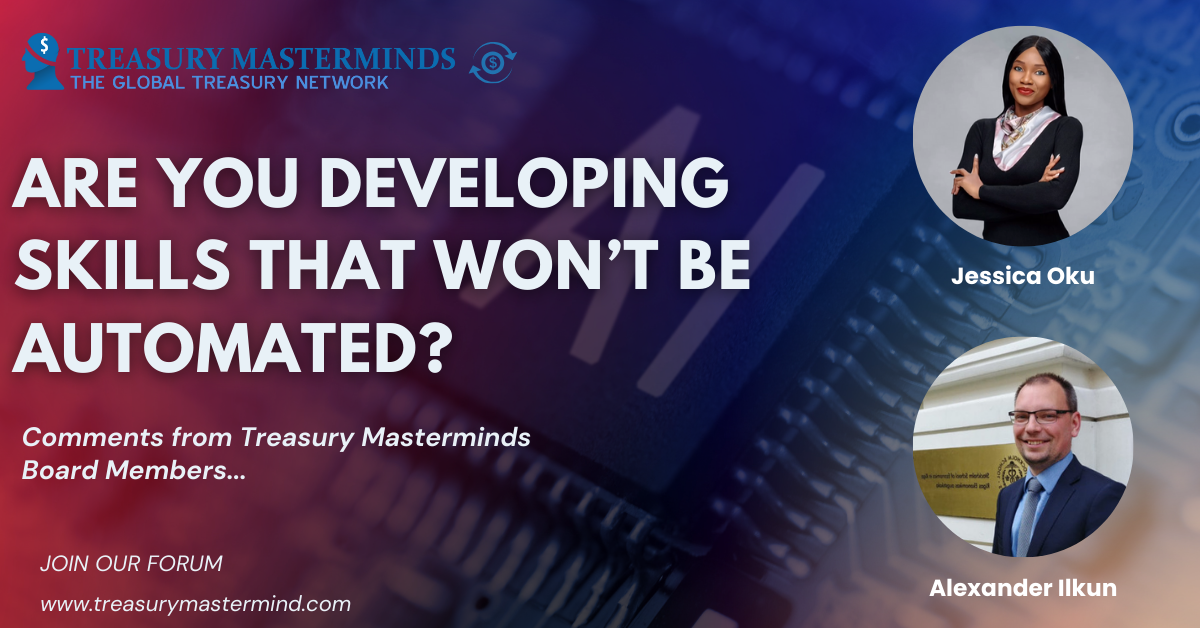
The article “Are You Developing Skills That Won’t Be Automated?” from the Harvard Business Review explores the future of work and the increasing impact of automation on various job roles. According to recent studies, a significant portion of U.S. jobs are at risk of being automated, particularly those involving repetitive and routine tasks, such as truck driving and warehouse stocking.
Recommended Reading
- AI Tools and Platforms for Financial Analysis
- Visa Expands Digital Wallet Capabilities with Seven Key Payment Innovations
- CNBC article discusses the growing concerns about the United States
The article argues that rather than focusing solely on which jobs will be automated, it is crucial to identify which aspects of jobs will remain the domain of humans. Key areas where human skills are irreplaceable include emotional intelligence and contextual understanding. For instance, while machine learning can diagnose illnesses more effectively than humans, the emotional support a physician provides to a patient’s family remains uniquely human. Similarly, bartenders engage in social interactions that go beyond merely mixing drinks, showcasing the importance of human connection and empathy.

Emotion and context are highlighted as two critical components that machines struggle to replicate. Emotion influences human communication, prioritization, and decision-making processes. Context, which is dynamic and ever-changing, allows humans to adapt to new information and circumstances in ways that machines cannot. These abilities contribute to skills such as critical thinking, creative problem-solving, effective communication, adaptive learning, and sound judgment—skills that are highly valued by employers across industries.
The article emphasizes the need for educational systems to focus on developing these non-automatable skills. This includes fostering abilities like clear communication, complex problem-solving, and adaptive learning, which are difficult for machines to emulate and are essential for maintaining a competitive edge in the workforce.
In conclusion, while automation poses a threat to many jobs, developing skills that harness human emotional intelligence and contextual adaptability can ensure continued relevance and success in an increasingly automated world.
We thought it would be valuable to get perspectives from Treasury professionals Alexander Ilkun and Jessica Oku, who are also Treasury Mastermind Board members.
Q: What tasks and skills does the treasurer need to avoid his tasks being automated away. That is, what makes a human treasurer unique compared to a robot treasurer. Or will we eventually only need bots in treasury?

Jessica Oku, Director of Fund Development at Women’s Health Coalition Canada, Comments
To stay relevant as a treasury professional, you will have to develop skills that cannot be automated like interpersonal skills, critical thinking and adaptability. These will help you solve problems creatively and effectively manage unexpected challenges. These unexpected challenges are what might limit AI’s capabilities as it is basically pre-programmed to handle known issues or tasks.
In the same vein, stakeholders management and collaboration cannot be automated. Hence, it is important for treasury professionals to continue developing skills that facilitates collaboration and emotional intelligence (EI) is an important element here. Organizations serve different types of stakeholders (internal & external), who have interests that need to be met for its continual survival.
One context I would give can be during a financial crisis, such as a sudden market downturn that causes significant volatility, a treasury professional must quickly analyze the impact on the organization’s cash flow, investment portfolio, and debt obligations. By applying critical thinking, you can develop strategic responses, such as reallocating resources, renegotiating terms with creditors, or adjusting investment strategies. Adaptability allows you to implement these changes swiftly and effectively to avoid negative impact on your organization.

Alexander Ilkun, Founder of ClearBox SIA, Comments
There was an interesting research that has shown that chatbots having conversations with patients were actually seen as being more compassionate than human doctors. In the healthcare industry where human doctors are extremely overworked and need to treat as many patients as possible that is understandable. However, the future isn’t replacing human doctors with bots based on this evidence. I believe the future is to embed AI in the working routine of doctors, so that AI can help them quickly interpret the data that they’re seeing, leaving time and emotional resources for having a conversation with the patient. Even if the bot is able to have a compassionate conversation, it is important how it will be perceived by the individual patient. Human beings are social creatures and a conversation with a robot, no matter how compassionate, will be seen as a fake and will not fill the social need. I believe the same can be related to Treasury space as well as Treasury teams are typically lean and are asked to perform more tasks with less or the same quantity of resources.
Emotional intelligence is critically important for Treasury functions. We often find ourselves in a project management position, since were the last ones moving cash. Be it M&A, cash repatriation, dividends to external shareholders or issuing and servicing debt, the focus is very often on the last step – cash moving which is strictly in the Treasury domain. However, so many things need to happen beforehand that typically takes place behind the scenes. I found that it is typically the Treasury team that is bringing all of the functions together to achieve the common end result. With this kind of setup it is crucial that Treasury teams not only possess the technical skills to do their job but also the emotional intelligence skills – communication skills, building buy-in, conflict resolution, achievement orientation, understanding your own emotions and those of others’. All of these are emotional intelligence skills that define how successful the individual and the team is going to be. Robots will not replace human interaction and these are the skills we need to continuously work on.
It would be a good place to draw a parallel to the EuroFinance topic we discussed with Patrick in Barcelona last year as it touched on this specific area.
There is a lot of debate about creativity of machines in that they can’t create anything new. While it is technically true, there is a saying that “everything new is very well forgotten old.” I believe it is underestimated to what extent machines are able to come up with ‘new’ things through re-working of something that already exists. There are so many stories about people from different industries and backgrounds coming together to create something unheard of in one industry that is a well-known truth and a well-established solution in another. A good example is from education and emotional intelligence. For a very long time teaching growth mindset was embedded in school curriculum in the UK, it is not something new. However, where it comes to the world of Finance, Emotional Intelligence is becoming a topic that is getting hotter and hotter. It will continue to be so especially due to AI and the focus on what humans should do best – social interaction and collaboration.
Thus, I would maintain that robots may be able to adapt more quickly and in more level-headed way that is free of emotional undercurrent and suggest a much better solution in times of crisis.
However, the true benefit will come from interaction between robots and humans – a robot may suggest options, even ask questions that helps Treasurer to move away from amygdala hijack in response to a crisis and into critically thinking about it. Robot can outline suggestions and get you 80% of the way, but the remaining steps that will be the most crucial will remain with a human. I believe it’s the symbiosis of the two that is going to become the future, not one replacing the other.
The earlier one starts developing these skills the better it is. There are universities that embed Emotional Intelligence in some of their curriculum. I’ve been giving lectures on EI to Year 2 BSc students at SSE Riga for a number of years now, which was always a well-received course. Pushing it even earlier into school curriculum with a particular focus not just on growth mindset – how to overcome challenges and focus on the good outcome – but also on social interaction is something that will benefit the future generations greatly.
It is important to remember that while it is definitely scary to live during the time of a profound change it is bound to create new opportunities as well. I’m sure the time of Industrial Revolution was not an easy one with many being scared of how fast the world is changing. Communication wasn’t as developed back then, so people didn’t know much about what’s happening in the world at large, but we now know that the change was profound. What we also know is that this change has created opportunities for people, new jobs were created that didn’t exist before.
There are moments in human history that are exemplified by solutions upending our way of living, eliminating certain jobs, but creating a whole host of others. The important thing is for people to be open and adaptable to these changes.
It isn’t always boiling down to communication and social interaction skills. A lot of this is also tied to other emotional intelligence skills – self-awareness, adaptability and positive outlook. These skills are crucial to be able to recognize where your strengths lie, being able to use those strengths in order to learn something new, and believing in yourself and that everything will work out well because you’re making an effort in that direction.
Join our Treasury Community
Treasury Mastermind is a community of professionals working in treasury management or those interested in learning more about various topics related to treasury management, including cash management, foreign exchange management, and payments. To register and connect with Treasury professionals, click [HERE] or fill out the form below to get more information.